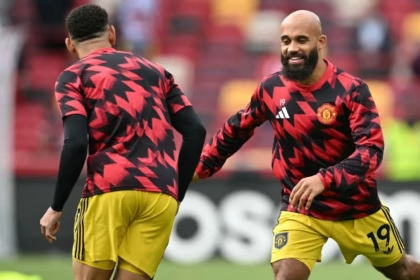The Court of Arbitration for Sport (CAS) has rejected Crystal Palace’s appeal against their demotion from the Europa League to the Conference League, due to regulations on multiple club ownership (MCO).
The Property Conflict and its Consequences
The UEFA decision, issued last month, determined that Palace maintained too close ties with Lyon. Palace’s appeal was based on three arguments: the CFCB’s decision was unfair, Nottingham Forest’s promotion to the Europa League, and Lyon’s participation. The CAS dismissed all three claims. Nottingham Forest benefits from this situation, moving up from the Conference League to play in the Europa League. Palace will have to participate in the Conference League in the playoffs round, where they will face the losers of the match between Fredrikstad and FC Midtjylland. The Palace qualified for the Europa League after defeating Manchester City in the FA Cup final in May. However, Paris Saint-Germain’s victory in the Coupe de France final caused Lyon to move up from the Conference League to the Europa League. If two clubs fail to comply with MCO regulations, the team best positioned in the league has priority to participate in the European competition. Despite the fact that Palace (12th) won the FA Cup and Lyon (sixth) qualified due to a technicality, the league position was the deciding factor. The key to the matter lies in the shareholding of John Textor, through Eagle Football Holdings Limited, who controlled Lyon and owned 43.9% of Palace. The Premier League club argued that Textor had no influence in the management of Palace, but regulations prohibit any party from having more than 30% of the shares in more than one club competing in the same competition. Textor sold his stake in Palace to the owner of the New York Jets, Woody Johnson, but UEFA rules are based on the situation of the clubs as of March 1st.
Before this summer, no club had been excluded from European competitions due to FFP rules, but Palace became the third affected by the stricter application of the regulations, which required compliance before March 1, instead of June 3 as in recent seasons.
Drogheda United, an Irish club, was excluded from the Conference League due to a conflict of ownership with the Danish club Silkeborg IF, and Győri ETO of Hungary will participate in the Conference League instead of FC DAC 1904 Dunajská Streda, which was eliminated. Drogheda won the FAI Cup in November, while Silkeborg qualified for the Conference League in June, three months after the new MCO deadline. Both Drogheda and FC DAC 1904 Dunajská Streda appealed to the CAS, but lost. Both Palace and Drogheda could argue that it is unfair to impose such restrictions on clubs that generally have no chance of qualifying for Europe.










